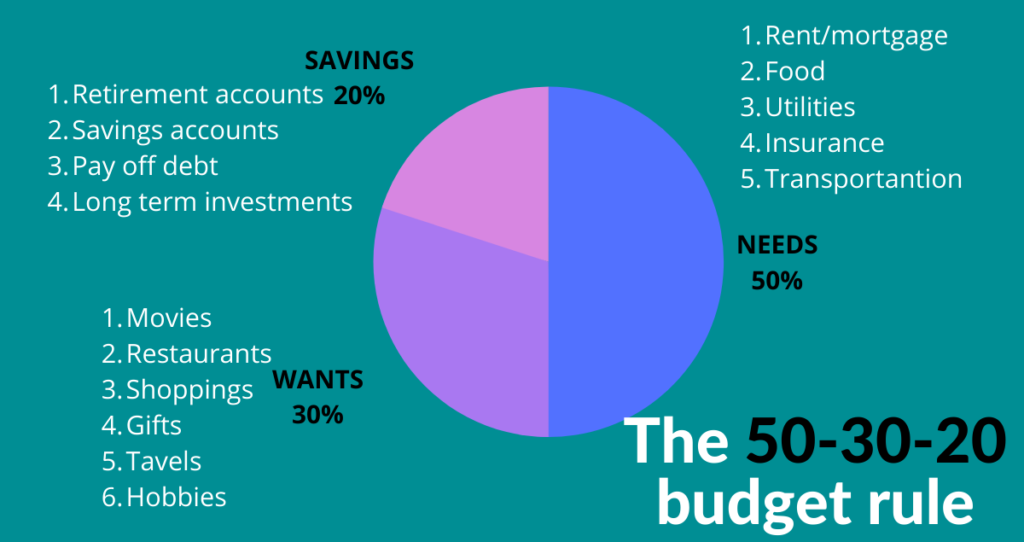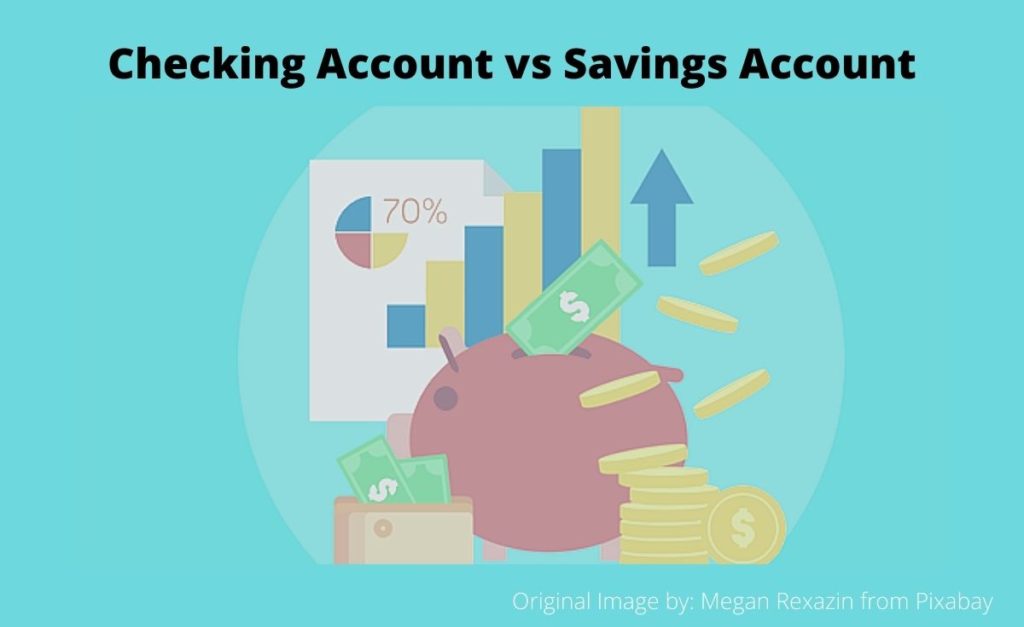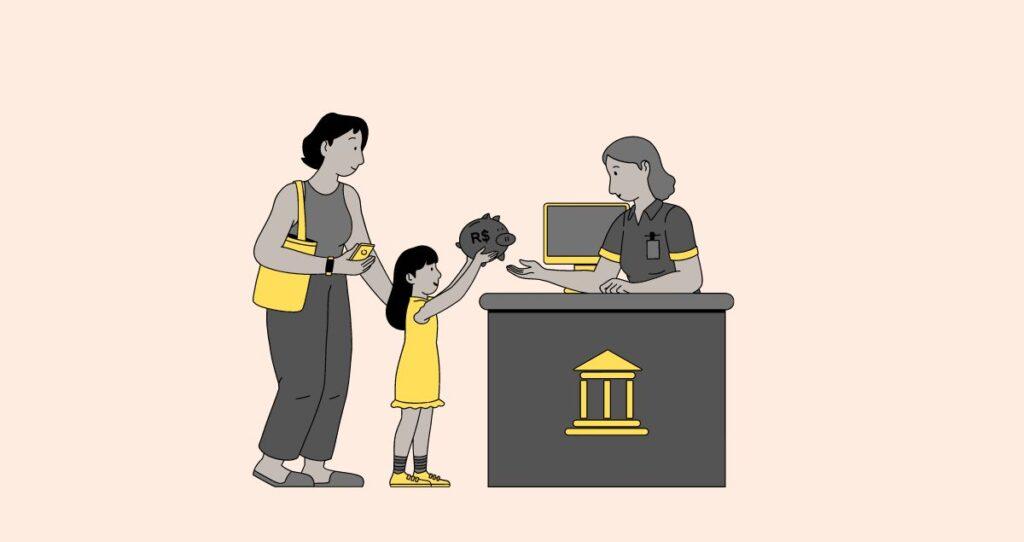A lot of people starve themselves thinking that that is what it means to live below your means. Unfortunately, living below your means does not mean giving up lunch so that you can save $5 or giving up the things that you love to save more money. Instead, living below your means refers to understanding your financial situation and your relationships with money and adopting a lifestyle that allows you to achieve your financial and life goals without sacrificing your needs.
Imagine a life where you can confidently pay your bills, effortlessly save money, and still enjoy the things that bring you joy. Living a frugal lifestyle may seem daunting, but it doesn’t have to mean sacrificing happiness. In fact, by implementing just a few ingenious strategies, you can embrace frugality without feeling deprived.
Whether you are trying to live below your means, have tried it before with less success, or want to take control of your finances and spending habits, you have come to the right place. In this article, I have put together a list of 11 effective strategies to live a frugal lifestyle while maintaining a fulfilling and satisfying life.
Without further ado, the following are 11 effective tips to live below your means.
1. Know your current financial habits and future goals
One of the first steps to living below your means is to understand your current financial habits. Taking an honest look at your spending patterns and financial choices will provide a valuable foundation for creating a budget and making positive changes.
By examining your expenses and income, you can identify areas where you may be overspending or wasting money. Are you frequently eating out instead of cooking at home? Do you subscribe to multiple streaming services that you rarely use? Additionally, assess your financial goals and priorities.
Are you,
- Saving for a down payment on a house?
- Planning for retirement?
- Wanting to pay off debt?
Knowing the answers to these questions is essential as they are an integral part of your financial planning and life goals.
2. Create a minimalist budget and stick to it
Creating a budget and sticking to it is an effective strategy to take control of your finances and live below your means. Since living below your means does not mean depriving yourself of necessities, it is essential to focus on understanding your finances and utilizing your earnings in ways that minimize your spending habits. To do this, you need to create a budget. Budgeting allows you to allocate your income towards your priorities and goals, helping you make intentional decisions about how you spend and save your money.
How to create a budget when living below your means?
When creating your budget, start by examining your monthly income and expenses. Calculate how much money you have coming in and how much is going out by listing all your income and expenses. This will help you understand where you may be overspending and identify areas where you can cut back.
Make sure to avoid these 8 budgeting mistakes a lot of people make.
Once you have a clear understanding of your current financial situation, set realistic spending limits for different categories such as groceries, entertainment, utilities, and transportation. Be sure to allocate some money for savings and emergencies as well. Remember, frugal living isn’t about depriving yourself but rather making conscious choices about how you allocate your resources.
You might also like: 12 financial tips that will change your life and make you successful
3. Regulate your spending
You cannot live below your means without having a budget. Also, your budget will not do you any good if you cannot regulate your spending. So, to effectively regulate your spending start by keeping track of your expenses. By diligently recording every purchase, you can quickly identify where your money is going and determine if any adjustments need to be made. This practice not only helps you stay accountable to your budget but also allows you to make informed decisions about where to cut back and where to allocate more funds.
Here are a few tips to help you regulate your expenses with ease and live below your means.
Avoid the “buy now, think later” habits
An effective strategy for regulating your spending is to avoid the “buy now, think later” habits. Before making a purchase, take a moment to consider if it aligns with your financial goals and values. Ask yourself if it is a necessity or merely a desire. By taking this pause, you allow yourself to evaluate whether the item or experience is worth the cost and if it truly adds value to your life. Very often you will realize that the purchase was merely a desire, and therefore, not necessary.
Designate a waiting period before making purchases especially expensive ones
Additionally, implementing a designated waiting period can help curb impulsive spending. Rather than immediately purchasing something that catches your eye, give yourself a specified amount of time to think it over. For example, if you saw someone driving a very nice car and feel like you want it, don’t go straight to the dealership to check it out. Instead, allow yourself a few months of delay to think about it and cool down.
This delay allows you to reflect on whether it is a necessary or impulsive purchase. Often, you’ll find that the initial excitement fades, and you can make a more rational decision, saving yourself money in the process.
Analyze your spending habits
Moreover, regularly reviewing your expenses and analyzing your spending patterns can provide valuable insights. Look for trends or areas where you consistently overspend and find creative ways to cut back.
Maybe you realize that dining out multiple times a week is draining your wallet, prompting you to explore meal prep or cooking at home. This proactive approach to regulating your spending empowers you to take control of your financial situation and make intentional choices that align with your frugal lifestyle goals.
You might also like: 20 clever ways to reduce expenses and increase savings
4. Embrace DIY and repurposing
A common trait among frugal people is that most of them embrace DIY habits and repurpose many tools daily. These habits allow them to spend money only where it is needed or necessary to make the purchase.
If you want to live below your means, you need to start fixing things yourself and repurposing different tools around your home.
Instead of buying new items, consider finding creative ways to make or repurpose things you already have to accomplish the same task. DIY projects not only save you money but also allow you to customize items to suit your preferences and needs. Whether it’s refurbishing old furniture, sewing your clothes, or creating homemade cleaning products, embracing DIY can be both fulfilling and cost-effective.
DIY and repurposing can also be a great way to express your creativity and resourcefulness. Instead of relying on store-bought items that everyone else has, you can create something unique and personalized. Additionally, this habit helps you reduce your waste while staying active which also improves your overall health.
Additionally, instead of automatically discarding items that seem to have no purpose, think creatively about how you can repurpose them. For example, that old bookshelf could become a unique storage piece for your garage or a creative display for your plants. Repurposing not only gives new life to old items but also saves you money by eliminating the need to purchase new ones.
You might also like: 15 ways to save money when Living Paycheck to Paycheck
5. Find creative ways to save on housing
Frugal living requires some creativity and resourcefulness. One of the most creative ways to cut back your expenses and live below your means is to lower your living expenses. This is because your living expenses are the next big expense that eats up most of your income besides tax. By lowering your housing expenses, you set yourself up for financial success as this trick boosts your savings tremendously.
Here are creative ways to lower your living expenses and save some cash.
- Consider downsizing. Evaluate your current living situation and determine if you truly need all the space you have. Smaller homes or apartments typically come with lower rent or mortgage payments, which can free up more of your budget for other financial goals.
- Explore alternative living arrangements. Co-living or house-sharing options have gained popularity in recent years, allowing individuals to split the cost of rent and utilities with roommates. This option not only reduces your financial burden but also provides an opportunity to build a sense of community and share resources.
- Rent out a room if you own a home. Whether it’s renting out a spare bedroom or converting a backyard shed into a rental unit, this can be a great way to generate extra income and offset your housing costs.
- Become a caretaker and live for free. If you’re open to a more unconventional approach, you might even consider house-sitting or becoming a caretaker for a property in exchange for reduced or free rent. This can be a win-win situation as you get to save on housing expenses while helping homeowners maintain their property.
- Reduce your utility bills. Implementing energy-efficient practices, such as installing insulation, using LED light bulbs, and investing in smart thermostats, can significantly lower your monthly expenses. Additionally, explore opportunities to save on water usage by installing low-flow fixtures and practicing water-saving habits. Do you brush your teeth while the water is running or keep the water running when washing your dishes? If so, stop these habits and only run water when it is ready to be used.
Related posts: What to do when being evicted with no place to go?
6. Make smart choices with transportation to successfully live below your means
With your frugal mindset in place, it’s time to extend your cost-cutting efforts to transportation. Making smart choices in this area not only saves you money but also helps minimize your environmental impact.
Here are tips to lower your transportation costs and successfully live below your means.
Avoid relying on your car all the time
Instead of defaulting to driving everywhere, consider alternative modes of transportation. If you live in an urban area, take advantage of public transportation options such as buses, trains, or subways. Not only is this usually cheaper than driving, but it can also help you avoid the hassle of finding parking and dealing with traffic congestion.
Consider carpooling and ridesharing
If public transportation isn’t available or practical for your daily commute, explore the possibility of carpooling or ridesharing with colleagues, neighbors, or friends who are headed in the same direction. Sharing the cost of fuel and maintenance can significantly reduce your expenses while also fostering a sense of community and reducing the number of cars on the road.
Walk or bike whenever possible
For shorter distances, consider walking or biking whenever possible. Not only are these options free, but they also provide an opportunity for exercise and fresh air. By incorporating physical activity into your daily routine, you can save money on transportation and gym memberships while improving your overall well-being.
Maintain your vehicles if you have to drive
When owning a car is necessary, make sure you’re maximizing its fuel efficiency. Regularly maintaining your vehicle by keeping the tires properly inflated, getting regular tune-ups, and changing the oil as recommended can help improve gas mileage and ensure your car is running efficiently. Additionally, practice fuel-efficient driving techniques, such as using cruise control on highways which saves 7-14% on gas thanks, according to KIA, and avoid idling too much to help stretch your fuel budget.
You might also like:
7. Save money on food and groceries
Just as making smart choices with transportation can help you save money and live frugally, so too can being strategic about your food and grocery expenses. By adopting a frugal mindset when it comes to what you eat and how you shop for groceries, you can make a significant impact on your overall budget while still enjoying delicious meals and satisfying your nutritional needs.
Here are strategies to save money on your food and groceries
- Plan your meals. Take some time at the beginning of each week to create a menu and make a shopping list based on the ingredients you’ll need. By having a clear plan for your meals, you can avoid impulse purchases and prevent food waste. Additionally, consider incorporating more plant-based meals into your diet, as fruits, vegetables, beans, and grains tend to be less expensive than meat and seafood. Plant-based foods also improve your health which is another added bonus.
- Buy in bulk whenever possible. Purchasing larger quantities of non-perishable items like rice, pasta, and canned goods can often yield significant savings in the long run. Additionally, buying fresh produce from local farmers’ markets or joining a community-supported agriculture (CSA) program can be more cost-effective and ensure you’re getting the freshest ingredients available.
- Optimize your food budget. Consider utilizing coupons and taking advantage of discount programs offered by grocery stores. Many supermarkets offer loyalty cards or digital coupons that can help you save money on your purchases. It’s also worth exploring discount grocery stores or purchasing generic brands, as they often offer similar quality products at lower prices.
- Make a shopping list before you go shopping. One of the most effective ways to lower your grocery bill is to make a shopping list. The list allows you to buy only what you need in the right amount. This prevents you from impulse purchases or buying more than you need.
Related: 45 Ways to save money on Groceries
8. Emphasize experiences over material possessions
Living a frugal lifestyle doesn’t have to mean sacrificing the things that make life meaningful. In fact, it can provide the opportunity to focus on what truly brings you happiness. Instead of accumulating material possessions, consider emphasizing experiences that create lasting memories.
Experiences have the power to enrich your life in ways that material possessions simply cannot. Whether it’s traveling to new destinations, attending concerts or shows, or participating in recreational activities, these experiences can provide a sense of adventure, personal growth, and connection with others.
When you prioritize experiences over material possessions, you shift your focus from accumulating things to creating moments and memories. Rather than filling your space with objects, you fill your life with meaningful experiences that bring you joy and fulfillment.
Emphasizing experiences over material possessions also allows you to fully immerse yourself in the present moment. Rather than being consumed by the desire for the latest gadgets or trendy clothing, you can cultivate gratitude for the experiences and connections that truly matter in your life.
9. Create an emergency fund
If you did not know it by now, creating an emergency fund is one of the most important financial decisions you will ever make. An emergency fund is a financial safety net that can provide you with peace of mind and stability in times of unexpected expenses or income loss. By setting aside a portion of your income each month, you can build up a fund that will act as a buffer, protecting you from financial hardship in the future.
Having an emergency fund allows you to navigate life’s uncertainties without resorting to credit cards or loans, which can lead to unnecessary debt and financial stress. Whether it’s a sudden medical bill, car repairs, or a job loss, having money saved up can help you handle these situations with ease and confidence.
How to save for an emergency fund when you are trying to live below your means?
To start building your emergency fund, begin by assessing your current financial situation. Take a look at your income, expenses, and any debts you may have. Then, determine how much you can comfortably set aside each month without sacrificing your basic needs. Even if it’s a small amount initially, every bit counts and will add up over time.
Consider automating your savings by setting up a direct deposit from your paycheck into a separate savings account specifically designated for emergencies. This way, you won’t even have to think about it.
Another way to boost your emergency fund is by cutting back on unnecessary expenses. Take a close look at your spending habits and identify areas where you can make cuts or find more cost-effective alternatives. Small changes, such as cooking at home instead of eating out, canceling unused subscriptions, or shopping for deals, can all contribute to saving extra money that can be directed toward your emergency fund.
How much should you save in your emergency fund to successfully live below your means?
The purpose of an emergency fund is to help you take care of unexpected expenses or cover your monthly bills after a job loss while you are looking for other opportunities.
Unfortunately, you cannot save for every emergency in your life. All you have to do is save enough money to help you get by. That is why you should only save for a few months worth of expenses in your emergency fund.
So, how much money should you save for emergencies?
It is recommended to save between 3 to 6 months of expenses. For example, if your monthly expense is $2,000, you should save between $6,000 to $12,000 in emergencies.
Saving less than 3 months of expenses in emergencies might not be enough to support you when you experience a longer financial strain. On the other hand, saving more than 6 months in an emergency fund, will not be a good financial decision either. This is because you will have too much cash sitting idle in an account while earning little to nothing.
Related: Should you invest your emergency fund for better returns?
10. Invest in long-term investments
Investing for the long term is a crucial part of living a frugal lifestyle. A big mistake a lot of people make is to think that buying investments is the same as spending money. I have to tell you this, but, buying a dividend stock is not the same as buying a shiny car or an expensive watch. Long-term investments allow your money to work for you and give you financial relief by supplementing your income-allowing you to retire early or achieve other financial goals.
Investing for the long term also allows you to keep your money away. This is important because locking your money away limits your access to it-meaning you won’t spend it.
How to invest money for the long term and successfully live below your means?
To invest for the long term and live below your means, focus on building a solid investment portfolio that aligns with your long-term financial goals. You should also diversify your investments across different asset classes, such as stocks, bonds, and real estate, to spread the risk and maximize potential returns.
Patience is also essential when investing for the long term. Avoid getting caught up in the hype of market trends or the fear of market downturns. Instead, adopt a disciplined strategy and stick with it over time. By investing regularly and staying committed to your plan, you can benefit from the power of compounding and the potential for your investments to grow exponentially.
Long-term investments are also beneficial because of lower tax liability which is another key element to keeping your money in your own pocket.
You can also contribute more to your retirement plans such as 401(k) and individual retirement account(IRA). All these accounts come with tax benefits and the ability to grow your accounts on a tax-free or tax-deferred basis-allowing compound interest to do its thing.
11. Adopt a minimalist lifestyle
At its core, minimalism is about intentionally simplifying your life and focusing on the things that truly matter. It’s about decluttering your physical space, as well as your mental and emotional well-being. By getting rid of excess possessions and unnecessary clutter, you can create a more serene and peaceful environment in your home.
Living below your means requires an honest self-reflection and letting some of your possessions go. Consider starting small by decluttering one room at a time. Take a critical look at each item and ask yourself if it brings value or joy to your life. If the answer is no, it may be time to let go. Consider donating or selling these items to not only free up space but also potentially earn some extra cash.
Adopting a minimalist lifestyle extends beyond just decluttering your physical possessions. It also means being mindful of your consumption habits. Before making a purchase, ask yourself if it aligns with your values and priorities. Will it truly enhance your life or is it just another item that will eventually end up collecting dust?
All these habits will enable you to stop cashing the trend or accumulating more stuff. Instead, they will help you build meaningful connections and pursue activities that bring you joy and fulfillment.








